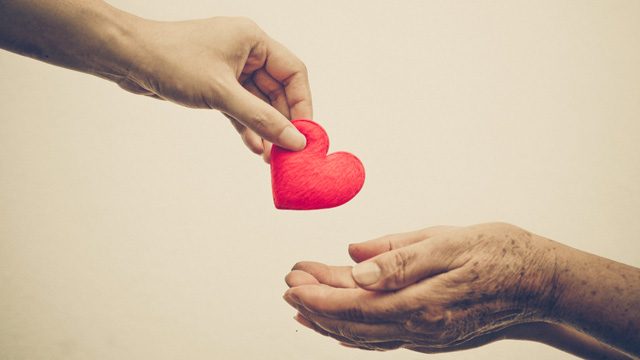SUMMARY
This is AI generated summarization, which may have errors. For context, always refer to the full article.

Surely, you do not need to be given a seminar on national and world events to know that there are unspeakable acts of violence being done by humans to one another. If you ask anyone of them, whether it is about religion, territory, political beliefs or personal view, each side will always think they are right, and the other, wrong. And they kill strangers for this immovable view.
I am not an expert on any creed and my slant of mind is not given to harping on what we “ought to be or do” based on creeds. But I was strongly moved to ask what has science found so far about how love stands in saving us from ourselves. Thus, to those who have not yet chosen to do violent acts, what chance has love got to prevail on them? What has science found about our chances of changing in favor of compassion – the concrete expression of love?
Scientists differentiate between empathy and compassion. Empathy is being able to feel what another is feeling, regardless of whether the feeling is positive or negative. It is feeling with the other. Empathy is what is at work when you root for your “team” members in life, whether your family, friends, school or country or whatever your group is and follow what they stand for. It is what you feel when you cheer for your sports team, when you hear about your sibling or your country being bullied. It is terrific when it is for good but horribly effective too when it comes to causing suffering to others. Just remember Nazi Germany, the Cambodian massacre during Pol Pot, or the Rwandan genocide. Those too, had empathy succeeding gloriously and monstrously.
Empathy can also overwhelm you with the suffering of others that you feel distress and your tendency is to protect yourself. In other words, empathy is an “embrace” of the other that actually rounds back to oneself because by promoting your group, you protect yourself, and your interests.
Inside the brains of people showing empathy with people who are part of their group, brain scans showed that brain parts associated with reward are activated when they see rival groups suffer. But the parts that are activated when they feel pain are found active when someone they are close to, suffers from pain. I myself work around this by always imagining that the stranger with whom am so upset, whether on the road or somewhere, is someone close to me.
Compassion, on the other hand, is oriented towards the other. It is feeling for the other. Being “for” the other, considers what promotes the well-being of the other and is moved to make that happen. This is the what the world needs now, and much more of. Are we born with it? Could we acquire it or more of it?
Studies have shown that when it comes to helping ease the suffering of others, it is compassion that wins over empathy. And science has found that compassion does not seem to be something you are born with or something that depends on situations – you can cultivate it!
A kind of meditation technique can elicit feelings of kindness to everyone – from imagined persons to people you are close to, and then, even to strangers. The research on this found that the longer people immerse in this technique, the more likely they will practice compassion. Even more, these same people give compassion without counting the cost or asking for anything in return.
This behavior is even reflected physically in the brain as the same study found that the more compassion training one has, the grey matter in a brain part called the insula, thickens. Our brains do respond to how much we cultivate compassion.
So yes, love still stands a chance in the face of all that is happening now. But it can also lose out if we do not make it real with compassion. Maybe we should have this compassion meditation as part of our school and work. We can have the next generation grow up with stronger compassion tendencies. We just have to better than this, don’t you think so? – Rappler.com
Add a comment
How does this make you feel?
There are no comments yet. Add your comment to start the conversation.